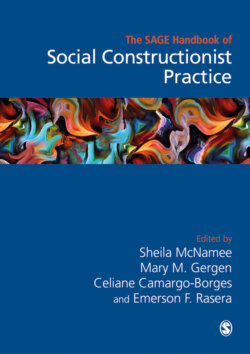Читать книгу The Sage Handbook of Social Constructionist Practice - Группа авторов - Страница 29
На сайте Литреса книга снята с продажи.
2 Practices of Inquiry: Invitation to Innovation
ОглавлениеMary M. Gergen
With the emergence of the social sciences in the early twentieth century, debates on the nature of research were active and ubiquitous. However, somewhere toward the mid-twentieth century, such controversy was largely replaced by convergence. More specifically, for many social scientists there was much to be gained by embracing what appeared to be philosophic foundations for a unified science. By identifying themselves with the assumptions of logical positivist philosophy, the social sciences would be placed on an equal footing with such widely respected sciences as physics, chemistry, and biology. At the same time, in the process of embracing a positivist conception of research, there was a radical reduction in what counted as an acceptable research practice. As the disciplines of science took shape, so did the disciplining of research methods. Then, with the emergence of social constructionist dialogues in the late twentieth century, a sea-change took place. These dialogues offered a major alternative to positivist foundationalism. In many respects, constructionist ideas proposed a dramatic liberation from methodological dogma. The strangulating grip of what had become a ‘methodolatry’ was released. Given this liberation, what may now be said about the nature of research practice? To what have the constructionist dialogues given birth? The contributions to the present section begin to answer this question.
To appreciate the issues at stake, it will be useful first to briefly scan the historical background for the present undertakings. We may then consider some general outcomes, along with more specific implications for constructionist researchers themselves. Finally, we turn to the particular features of the contributions to this section.
